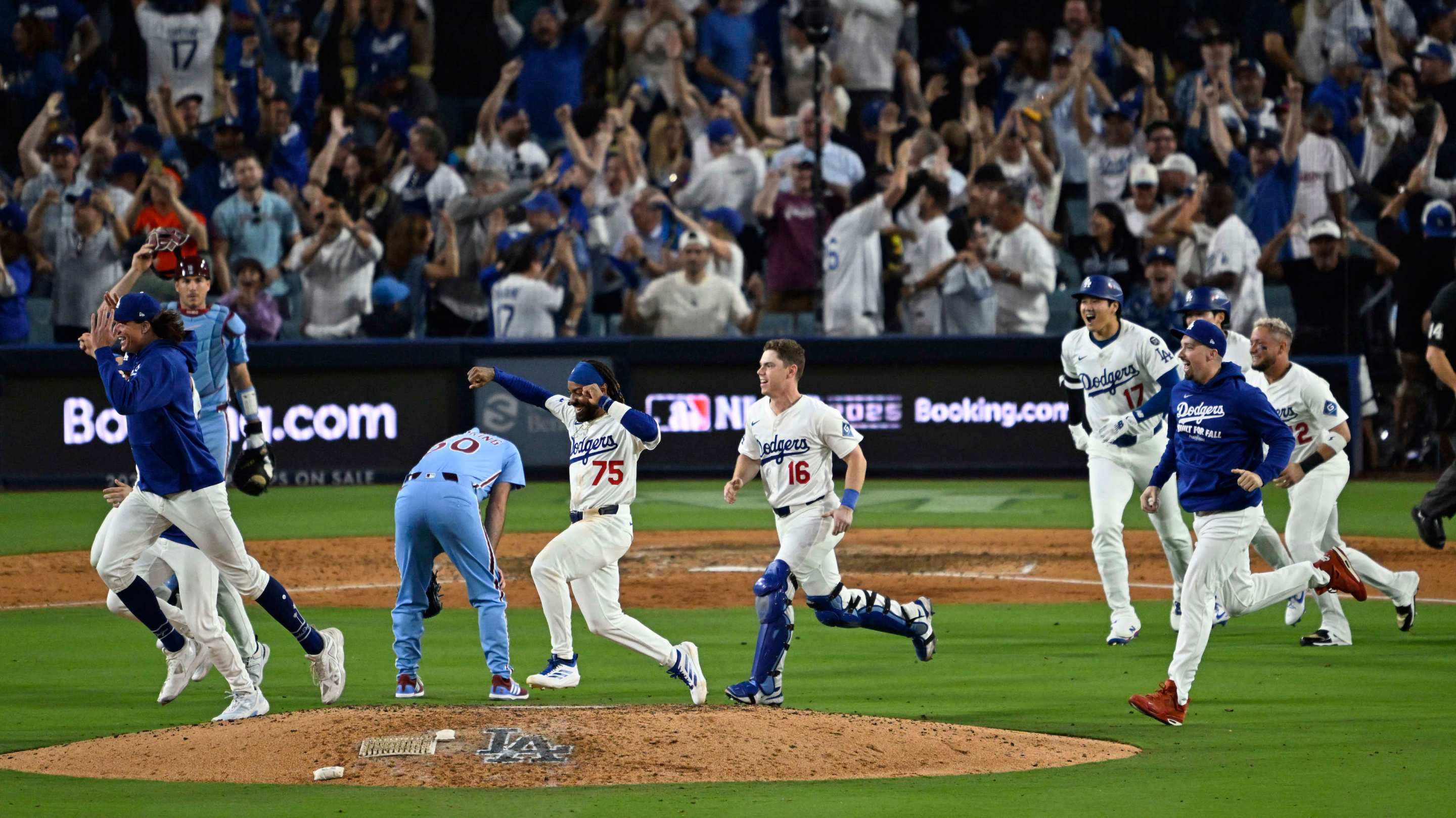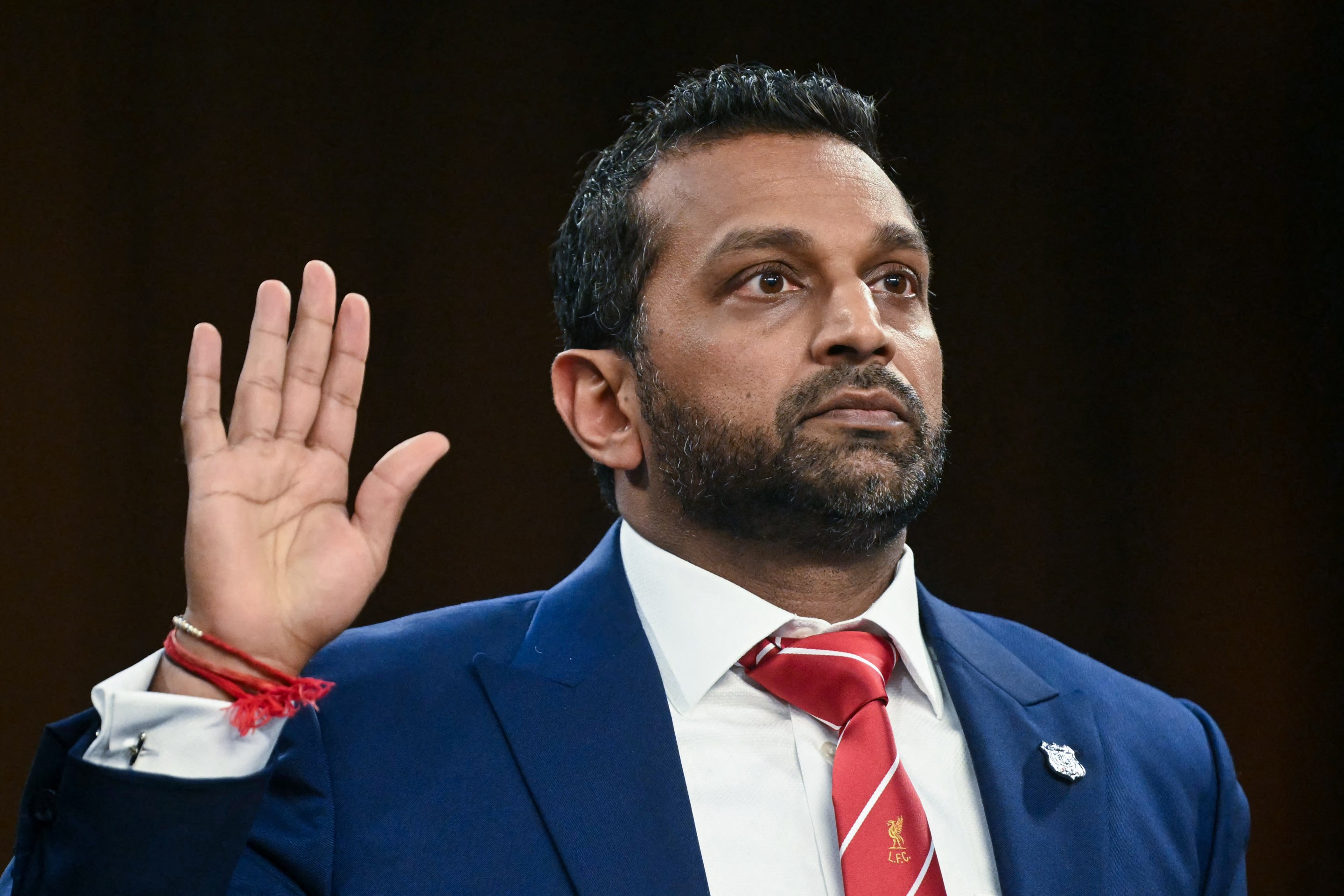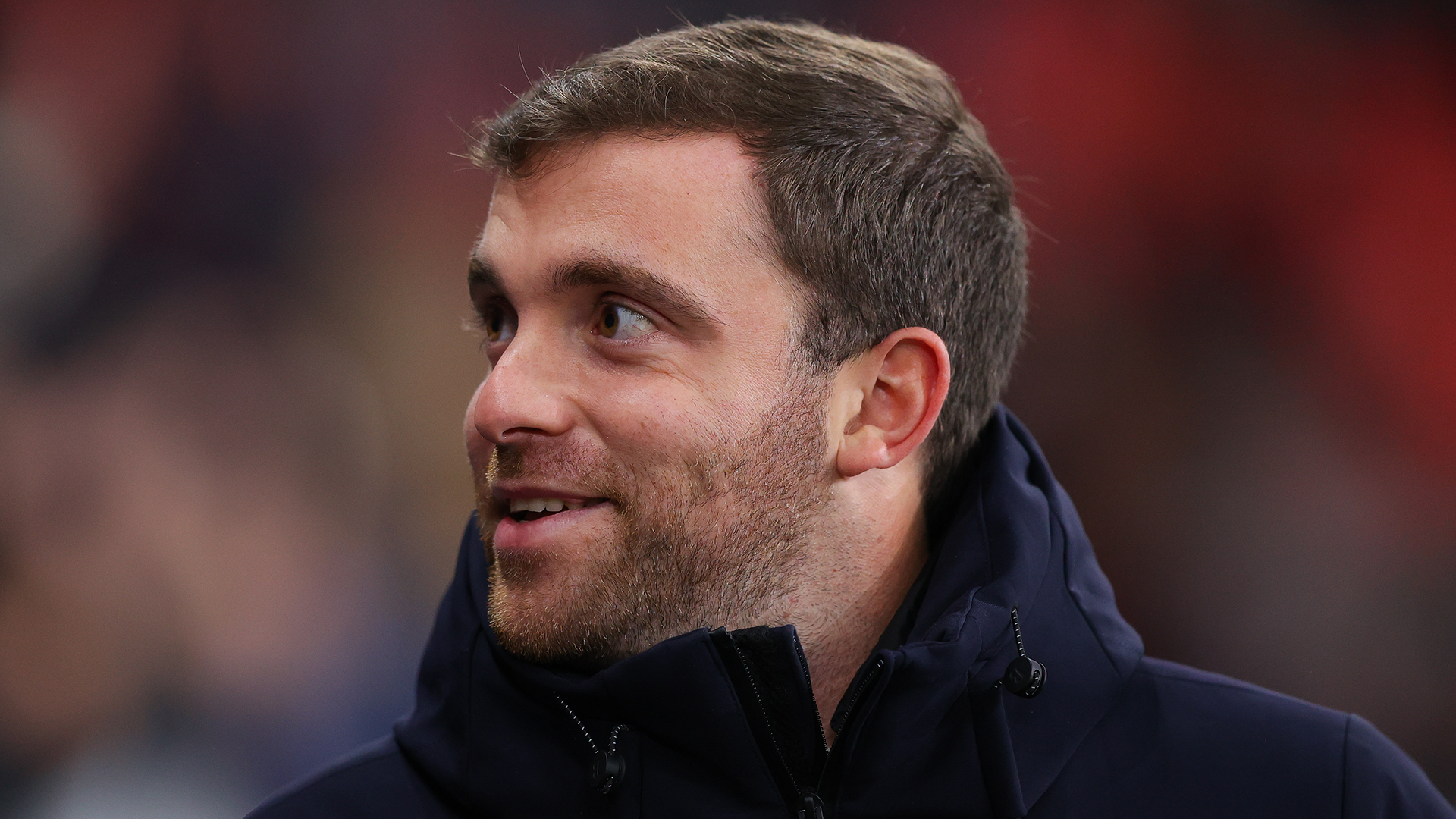In the play-by-play, this is how the Philadelphia Phillies lost the NLDS: With the bases loaded and two outs in the bottom of the 11th inning, Los Angeles Dodgers center fielder Andy Pages bopped a broken-bat ground ball directly to the mound. Phillies relief pitcher Orion Kerkering bobbled the ball, scrambled to recover it, and—with still a lifespan's worth of time to toss Pages out at first base and end the inning—panicked. He tossed the ball to, or at any rate vaguely toward, home, where it sailed far past the glove of J.T. Realmuto. The Dodgers won the game, and thus the series, on a walk-off throwing error.
Pages, who was 1-for-14 in the NLDS before his plate appearance, was statistically rewarded for his series-winning play with officially going 1-for-15 to the tune of a .066/.066/.066 series slash line. Not that he cares about it now. Kerkering was in the tensest position a pitcher could possibly be in, and he flinched. His name will forever be attached to only the second playoff series–ending walk-off error in MLB history. Baseball.
The ultimate cruelty of the Kerkering error is its comprehensibility. In a sport where Javier Báez once brain-boomed the Pittsburgh Pirates into total defensive collapse by attempting to retreat to home plate on a grounder, Kerkering's throw to home was very poor, but not truly a once-in-a-lifetime error. It's not common, but you've seen a play like that more than once, and you'll see it again. There were 10 walk-off errors this year, but they could be swallowed up within the flood of a 162-game season; Kerkering's came on the final play of a postseason series. And if there is one thing the MLB playoffs will always punish, it is bad timing.
Still, here's how the Philadelphia Phillies actually lost the NLDS: In spite of some lights-out pitching from their starting rotation, the offense—statistically one of the worse overall offenses in the playoffs—delivered four or fewer hits in three out of the four games in the series. In spite of Bryce Harper and Kyle Schwarber's excellent postseason histories, the top of the Phillies lineup in particular was atrocious through the first two games of the series. Even after the bats woke up to demolish the Dodgers in the third game of the series (aided by what might have been Dodgers manager Dave Roberts choosing to save his pitching arms and punt away the game), they were asleep again in the fourth.
Talk about bad timing. How unlucky is it that all of the Phillies' hitters suddenly forget how to hit the baseball? Speaking as someone who has became arguably too well-adjusted to postseason baseball probabilities, the question has an easy answer: That's variance, baby. An entire team can go cold three times in four games. It's forgivable within the span of 162 games, but season-ending in an elimination format. This is why baseball will drive you crazy.
The angry declaration that the Phillies roster, for all that it can do in the regular season, is not built to succeed in the playoffs is true, but not because the Phillies' offense is oriented around home runs, or anything like that. It is true in the sense that no MLB roster can be built to guarantee success in the playoffs. All you can do is stack the probabilities in your favor.
The other side of the Phillies' poor offense is that the Dodgers have a terrifying army of glass-cannon starters, all healthy for the playoffs, who are unhittable on their day. (Talk about good timing.) The rotation is deep enough to muddle the game plan of suffering through the starters to get to the Dodgers' much sketchier bullpen: Roberts innovated in the art of bullpen management by doing away with the concept altogether and deciding to chain starters together. Tyler Glasnow relieved a Shohei Ohtani outing; Blake Snell was relieved by Emmet Sheehan, who had a 2.82 ERA across 15 games and 12 starts in the regular season; Roki Sasaki served as a pseudo-closer for two of the Dodgers' wins and pitched three hitless innings for the Dodgers in their third.
There's no need to overcomplicate things. This is how the Philadelphia Phillies lost the NLDS: They ran into the Los Angeles Dodgers, who were at their most vulnerable with no bullpen and their star player going an abysmal 1-for-18 across four games and still won, because after Shohei Ohtani and Mookie Betts and Teoscar Hernández, the lineup will still make you go through Freddie Freeman and Will Smith and playoff Enrique Hernández. The Dodgers are playing this postseason with loaded dice. After all, if any team out there understands the horrors of postseason sample size, they're it.






